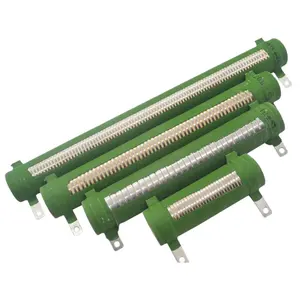
RX20 High Voltage Wire Wound Resistor 500 Ohm 100 Ohms Resister Fixed Resistance Brake/braking Resistors


2023 Hot 1% Metal Film Resistor Rack Assortment Kit 1/8W 5W MF Axial Resistencias 1/6W 1/4W 1/2W 3W 1W 2W 1W 2W 3W 5W Resistor























Metal film resistors are a staple in electronic circuits, and the 82 ohm metal film resistor is a specific type that offers stability and precision. This category of resistors is manufactured by depositing a thin metal film layer onto a ceramic base, providing a balance between performance and cost-effectiveness.
The 82 ohm resistor comes in various configurations, including axial and surface-mount designs, to accommodate different circuit board layouts. While some may be encapsulated in epoxy to enhance durability, others are left uncoated for applications where minimal resistance to environmental factors is required.
These resistors are integral in applications requiring precise voltage regulation and current limitation. From power supplies to medical equipment, the precision metal film resistor ensures reliable performance. Its role in analog circuits is particularly critical, where it helps in noise reduction and signal conditioning.
An 82 ohm precision resistor is characterized by its tight tolerance levels and temperature coefficient. The materials used, typically a high-grade metal alloy for the film, are chosen for their stability and low noise properties, which are essential for maintaining the resistor's value over time and under varying thermal conditions.
The advantages of using an 82 ohm 1% metal film resistor include its low noise, high accuracy, and long-term reliability. These resistors are less susceptible to oxidative processes than their carbon counterparts, making them a preferred choice for high-precision applications.
When selecting an 82 ohm 0.25W metal film resistor, it is important to consider the required power rating and tolerance for the specific application. It is also crucial to understand the environmental conditions the resistor will be subjected to, as this can affect its performance and lifespan.